The stock market is full of BS and fakes … enough is enough!
My goal as a teacher is to help my students understand the whack-a-mole of ridiculousness and speculation that is the stock market. Once you get it, you can potentially benefit from the many informational inefficiencies that can create crazy stock moves.
But I also want you to be better than the legions of zombie traders who can’t think for themselves and just follow alerts.
Alerts are imperfect at best — dangerous and fraudulent at worst. So it’s a much better idea to learn the market mechanics and develop your own strategy based on what you’ve learned.
Why do I teach? Because I want you to become a self-sufficient trader.
Table of Contents
Why Do I Help People?
I get a lot of emails like this … people ask me, “Tim, why do you help people you don’t even know?”
Why would I help strangers? Why do I share every single trade? Why do I want other people to build their ‘knowledge account?’
Utilize EVERY trade to increase your knowledge account, NOT just your brokerage account. Because when your knowledge account is big enough & it starts overflowing after a few years, all that expertise inevitably spills over into your trading account too & your win rate spikes BIG
— Timothy Sykes (@timothysykes) August 24, 2020
Why don’t I just take my millions, go to a private island, and shut up?
It’s simple. There’s a big problem with penny stock trading, and I have a solution.
(*Please note: My trading results, along with the results of my top students, are far from typical. Individual results will vary. Most traders lose money. My top students and I have the benefit of many years of hard work, dedication, and experience. Trading is inherently risky. Do your due diligence and never risk more than you can afford to lose.)
Enough is Enough: Helping Others Help Themselves
There are so many scammers out there … it makes my blood boil.
SO many so-called gurus claim to have the ultimate get-rich-quick strategy. Their promise? All you have to do is follow their alerts!
Bitcoin, forex, binary options … I’ve seen ‘em all.
It’s even gotten personal. Some scammers have even pretended to be me. They impersonate me on social media and try to rob people! That’s where I draw the line.
This is CRAZY. Enough is enough.
Education is the Gateway
I may not be able to stop all the scammers or impersonators. But I can help people help themselves.
The most effective way to avoid scams and find consistency as a trader? Educate yourself.
I’m passionate about teaching. I want to inspire others.
But if you’re inspired by the laptop lifestyle that I live…
If you want to find financial freedom so you can be free to pursue what matters to you…
I have the knowledge and the team to help.
If you want a better life/financial freedom, put in the time when other people aren't willing to. You wonder why there's not more millionaires & most people are stuck in the rate race, two words: WORK ETHIC! Everyone wants success, but too few study/work enough to make it happen!
— Timothy Sykes (@timothysykes) August 1, 2020
My Trading Challenge is an educational program based on what I’ve learned in 20+ years of trading.
I’ve had to shift my strategy multiple times since my start in the market. We’ve transitioned from bull to bear market and back again in that time.
I survived the financial crisis of 2007–2008. This year, I adapted to the current market volatility … And I’ve had my best trading year ever, with over $850K in profits so far.*
I create lessons, webinars, watchlists, and yes, even alerts (for education — don’t just be a follower!) for my students. There’s an awesome chat room community … If you want to get serious about trading, the Challenge is the place to be.
I’ve Been Burned
I recognize the many issues with trading penny stocks.
It makes me angry when scammers try to lure newbies into these sketchy companies.
I’m not perfect … I’ve been burned, too. I was once devastated by a $500K loss.
You can read about that in my autobiography, “An American Hedge Fund: How I Made $2 Million as a Stock Operator & Created a Hedge Fund.” It’s no cost to download.
The silver lining to that loss? Hopefully, I can teach my students how to avoid that kind of painful lesson.
There’s only so much abuse you can take from these scammers — enough is enough. I’m not going to make everyone rich, but I am going to teach them honestly.
More Breaking News
- Price Predictions Fueled by Company Moves In Market Dynamics
- Huntington Bancshares Faces Earnings Miss, Market Considers Impacts
- Insider Stock Sale Raises Questions About Micron’s Market Position
- Microbot Medical Eyes Expansion with Key Milestones in 2026
How I’m Different
I’m not different because I’m the best trader out there. I’m not. I exit trades too soon and leave money on the table all the time. And I make mistakes — but I’m smart about cutting losses quickly.
What makes me different is that I’m transparent.
Because I’m honest, I tell my students things like they’ll have to work hard and learn the patterns I teach. I tell them that it takes years to find consistency.
For example, my top student Tim Grittani started with $1,500. Now, he’s made over $12 million.* Everyone loves that story. Nobody loves the part where he made nothing his first nine months of trading. But it’s real.
People don’t want to work, so most newbies ignore me. But not all of them, and those who listen usually thank me later.
The ‘singles, not home runs’ approach isn’t as fun as the promise of getting rich quick. But it can potentially pay off over time. Just look at Grittani.
Living the Life…
These days, I donate all of my trading profits to charity. I only trade so that I can teach.
I’m already a millionaire.* I don’t need more money. I prioritize my students.
Right now, I’m living my ideal life. I have financial freedom. I get to travel the world and make documentaries. I get to help people. And I get to indulge in all of my passions.
I want you to have your ideal life, too. If you think trading could be the way to make that happen, consider applying for my Trading Challenge … It could be the first step toward finding your passion and pursuing your dream life.
Enough is enough. I want to help you cut through the BS and make your goals a reality!
Are you willing to work hard? Are you motivated to pursue your passion? Leave a comment and let me know what you hope to get out of trading.
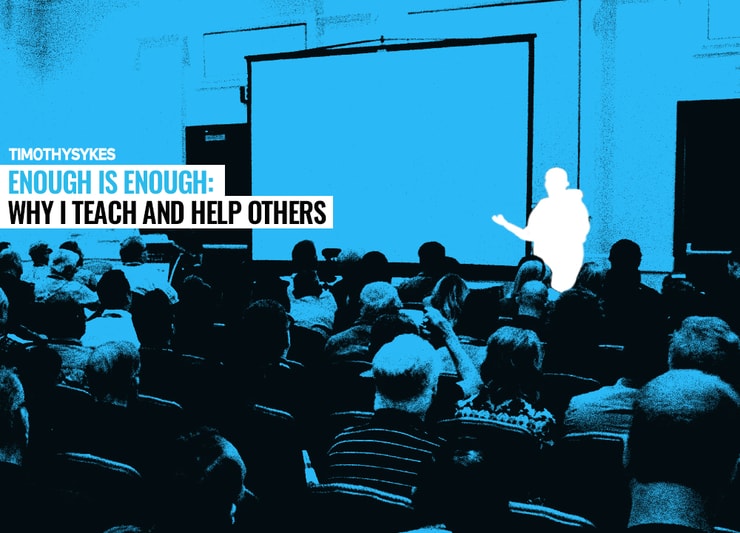


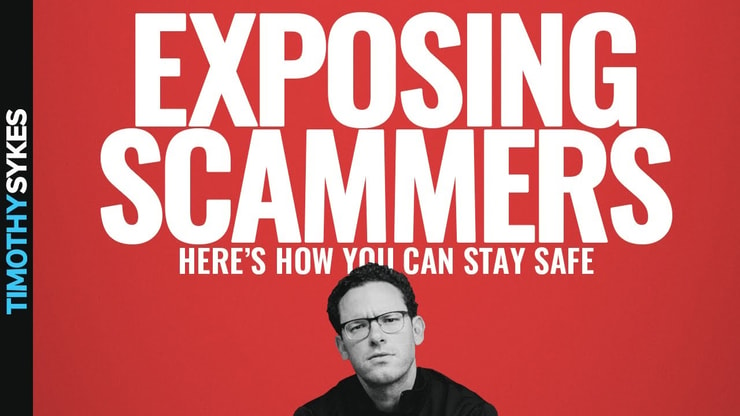

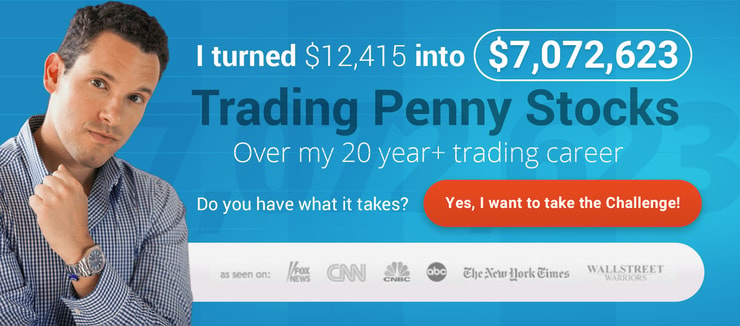
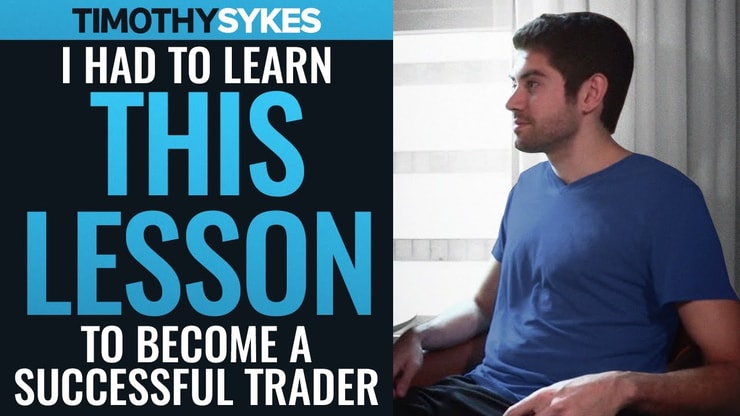
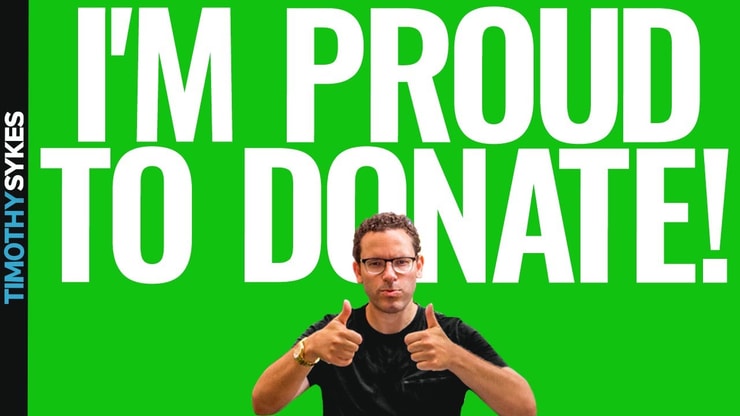

Leave a reply